Introducing Europe’s best-kept secret! Eastern Europe’s less-known cities offer an authentic ‘off the beaten track’ trip for tourists, wanting to soak up some European charm whilst avoiding the crowds.
Why choose the cities of Eastern Europe
Although the cities of Eastern Europe are not often the first places that jump to mind when imagining a dreamy European city break, there’s so much they bring to the table. Many of Eastern Europe’s cities are packed with a rich history—from medieval castles to Roman ruins, and well-preserved landmarks to charming old streets.
Even better still, you can holiday in Eastern Europe for a fraction of the price of visiting some of Europe’s more well-known tourist hotspots. A less typical choice of destination often means fewer tourists, meaning you can avoid the cruise ships full of people pulling into Europe’s biggest and most well-known ports and head to the quiet streets of the less-explored but equally as alluring cities.
Budapest

Budapest, Hungary’s capital, is a charming city built on two sides of the River Danube, separated into two parts, Buda and Pest. Whilst Pest offers some great culture and lively nightlife, Buda boasts fantastic architecture and history.
An unmissable experience in Budapest is the thermal baths. Due to the city’s location on a geological faultline, there are many places to relax in thermal waters. Budapest is home to Europe’s largest spa complex, the Széchenyi Baths, where you can soak or even attend a pool party!
On the Buda side of the river, you’ll find the Buda Castle and Fisherman’s Bastion, two iconic, historical landmarks built on the banks of the Danube. Head into downtown Pest and you’ll find a network of ‘Ruin bars’—bars that have sprung up out of uninhabited ruin buildings, creating something totally unique.
Finally, you can’t visit Budapest without trying goulash, a typical Hungarian stew, or langos, a delicious fried bread you can get from the neo-gothic Central Market.
Bratislava
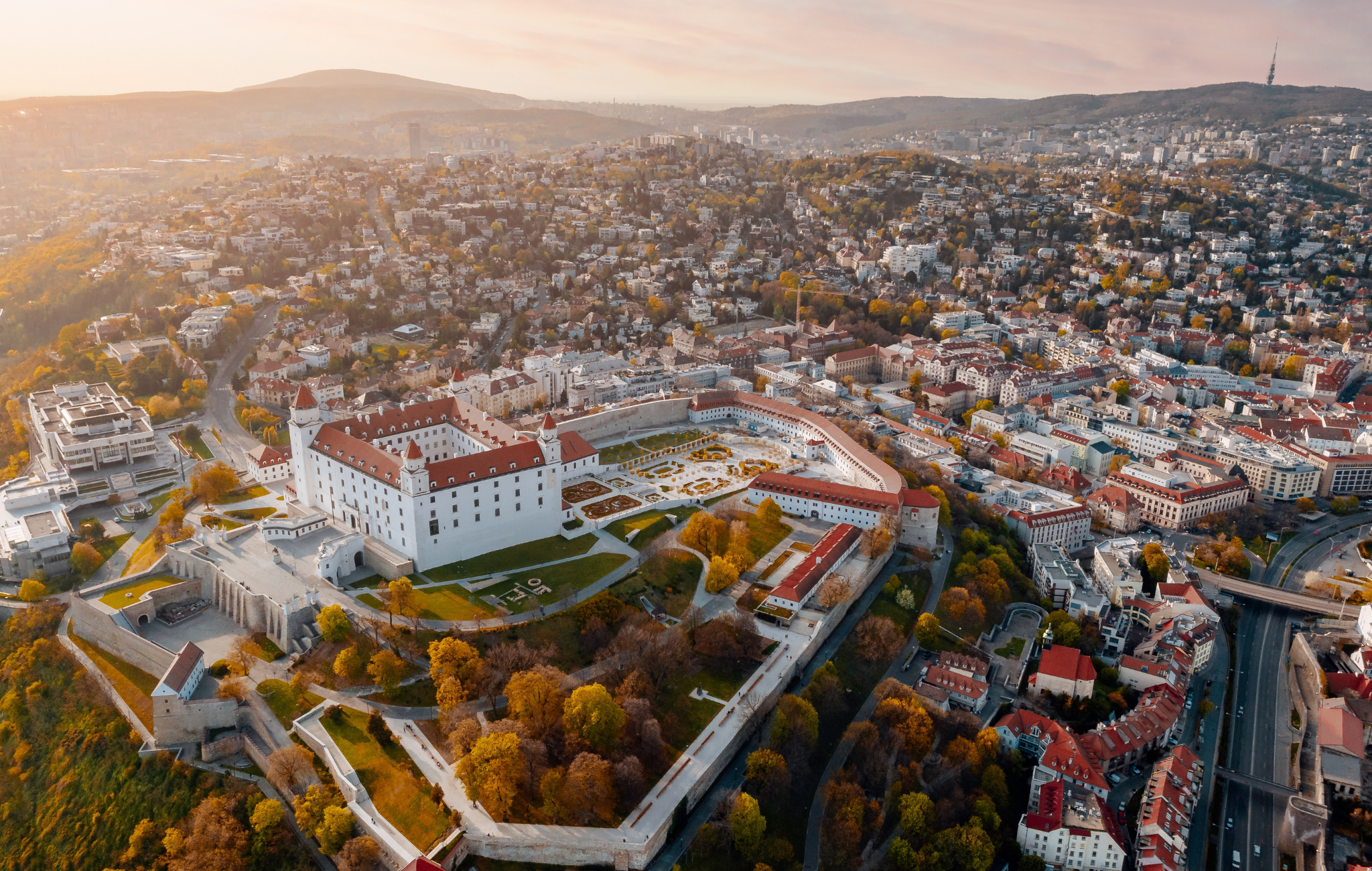
Bratislava is Slovakia’s capital, a city brimming at the seams with culture and history. Walk the banks of the River Danube, climb to the top of the medieval Michael’s Gate for a panoramic city view, and visit the hillside Bratislava castle.
While in Bratislava, seize the chance to try the city’s traditional dish, Bryndzové halušky (sheep’s cheese dumplings). This deliciously warming dish is a great way to get a taste of Bratlisavan traditions. What’s more, Bratislava is only 50 miles from the Austrian capital Vienna, which can be reached in just over an hour by rail or road.
Prague
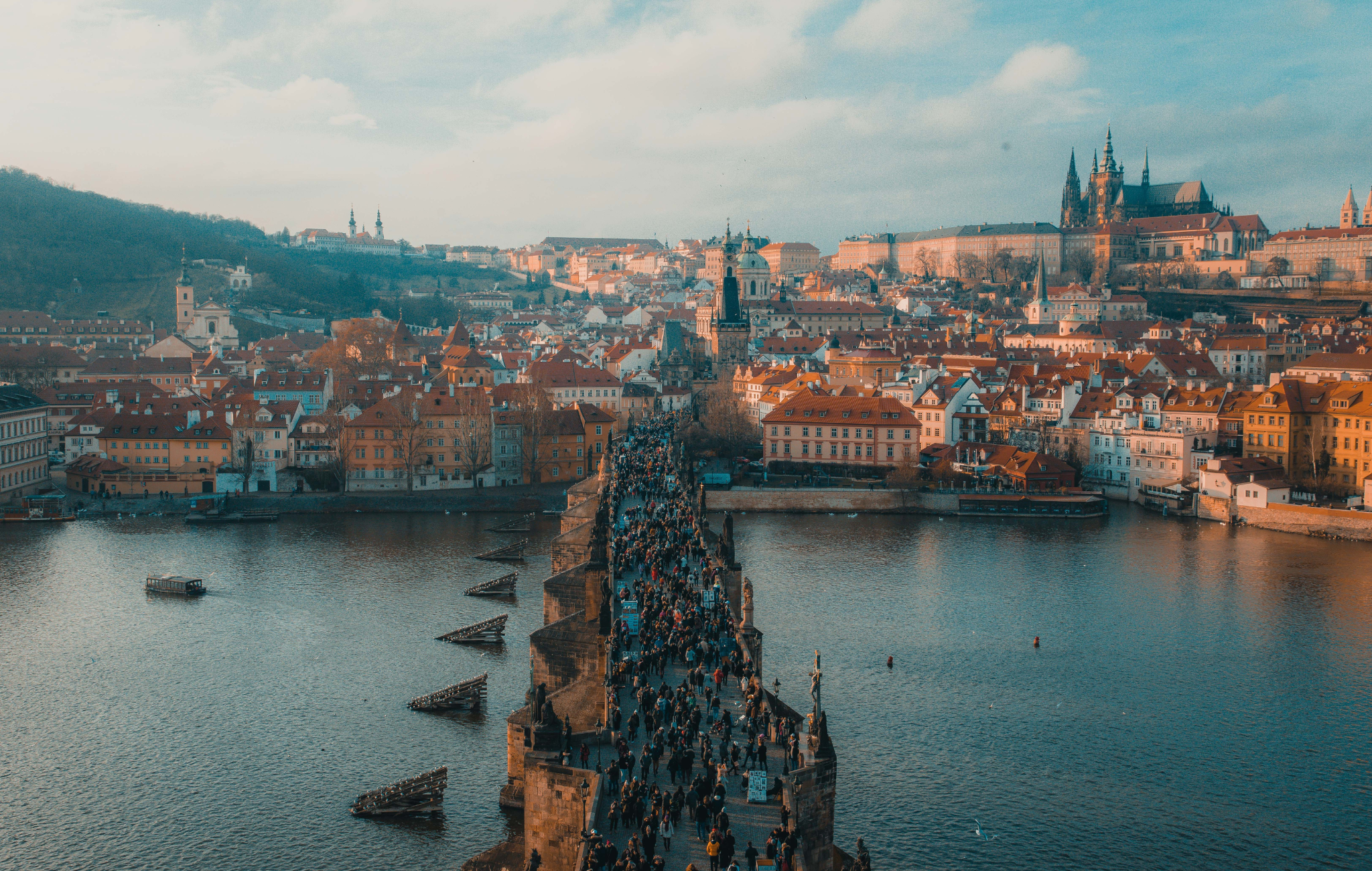
Prague is a fairy-tale city, renowned for its cultural life—so much so that Mozart used to live there! The Czech Republic is well-known for its Pilsners, but the capital has so much more to offer beyond beer. With quaint, cobblestone streets and beautiful old town squares to eat, drink and admire the view, Prague is a beautiful spot for a weekend trip.
Impressively, Prague Castle holds the Guinness World Record for being the largest coherent castle complex in the world. Built in the 9th century, the huge complex is packed with Czech history and great views of the city’s most famous landmarks.
Check out the iconic Charles Bridge, a pedestrianized bridge lined with catholic saints, or head up the hill to Letná Park for some of the best views of the city and the river Vltava. Prague is nicknamed ‘the City of a Hundred Spires’, enriched with gothic, baroque and renaissance architecture, just to name a few.
Riga
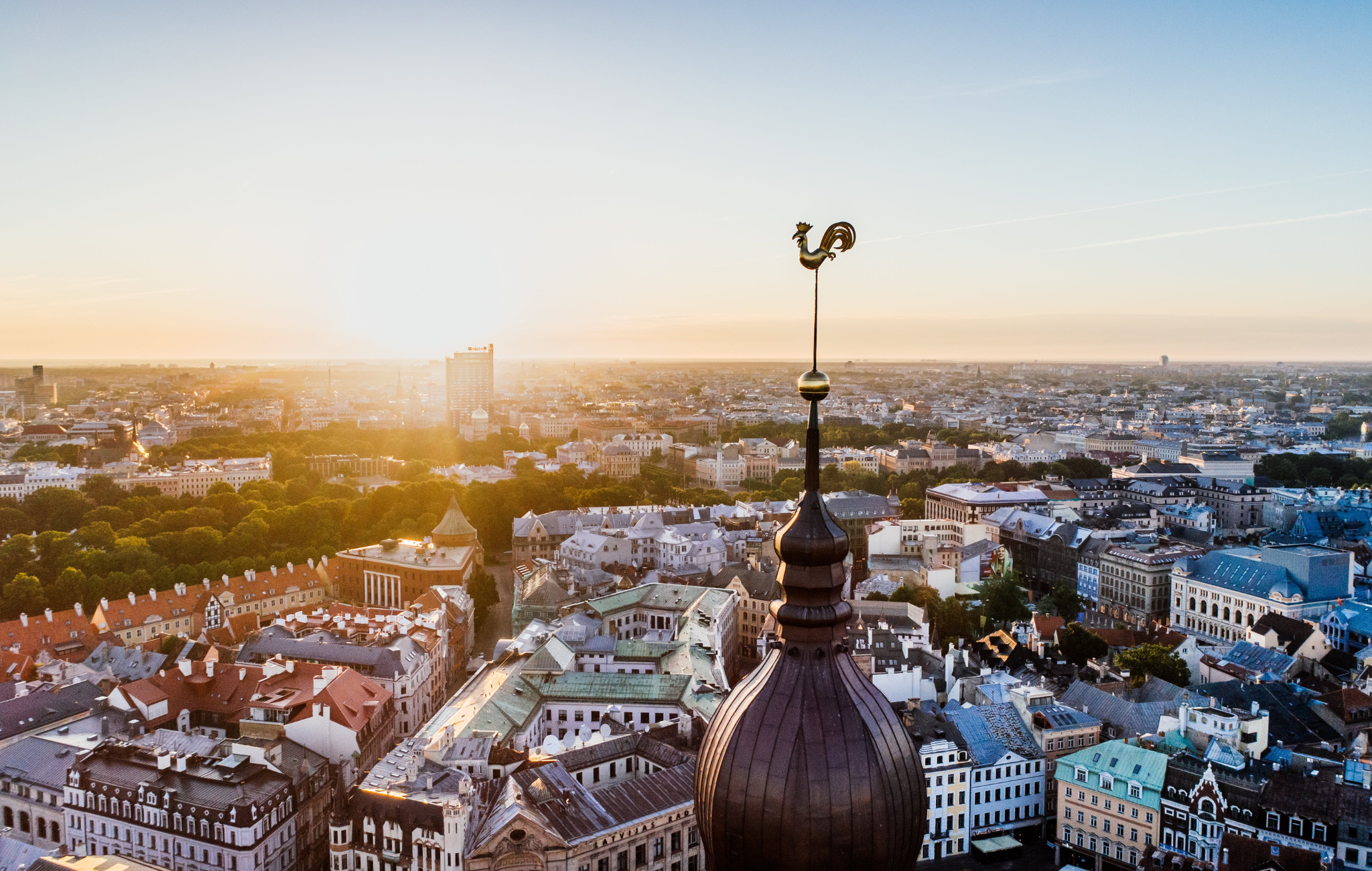
A less-known Eastern European city that radiates charm is Latvia’s capital, Riga. The city, located at the river mouth of the Baltic Sea, contains a well-preserved medieval old town, bustling with life. Riga is inundated with art-nouveau buildings resulting from an economic boom in the early 1900s, bringing plenty of character to the cobbled streets and existing and varied architecture.
While in Latvia, you can try the country’s traditional spirit, Black Balsam, or enjoy Rye bread at the Central Market. Finally, climb to the viewing platform of St Peter’s Church for the best view of the city.
Krakow
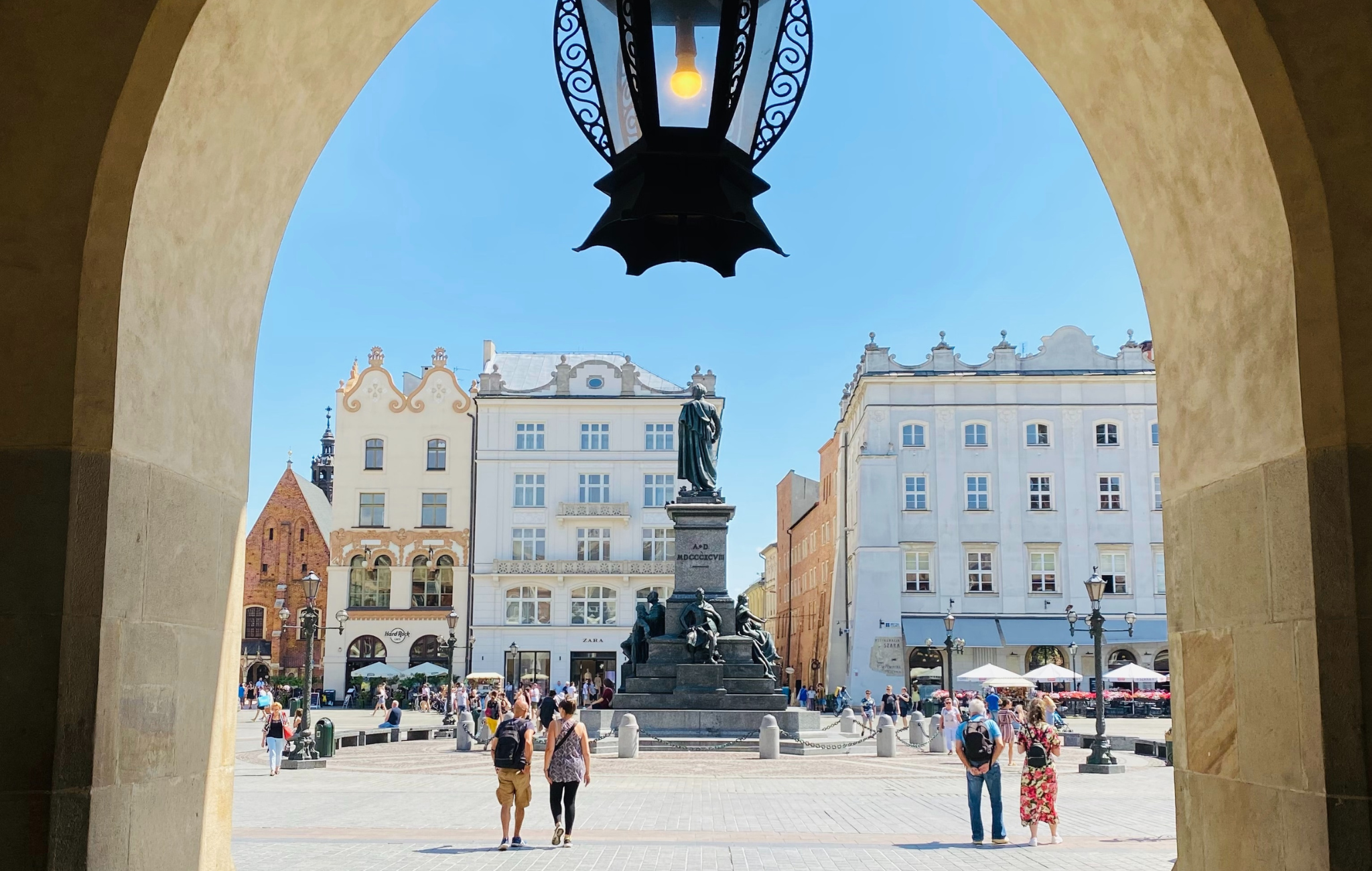
Another spectacular city in Eastern Europe is Krakow, Poland’s second-largest city. Krakow has plenty of medieval architecture and a famous Jewish quarter to explore.
For something a little bit different, outside of the city you’ll find the Wieliczka Salt Mine—an underground labyrinth featuring tunnels, four chapels and many statues carved out of rock salt by miners. The salt mine is not operating anymore, but at 327 meters underground it’s an adventure to explore.
Tallinn
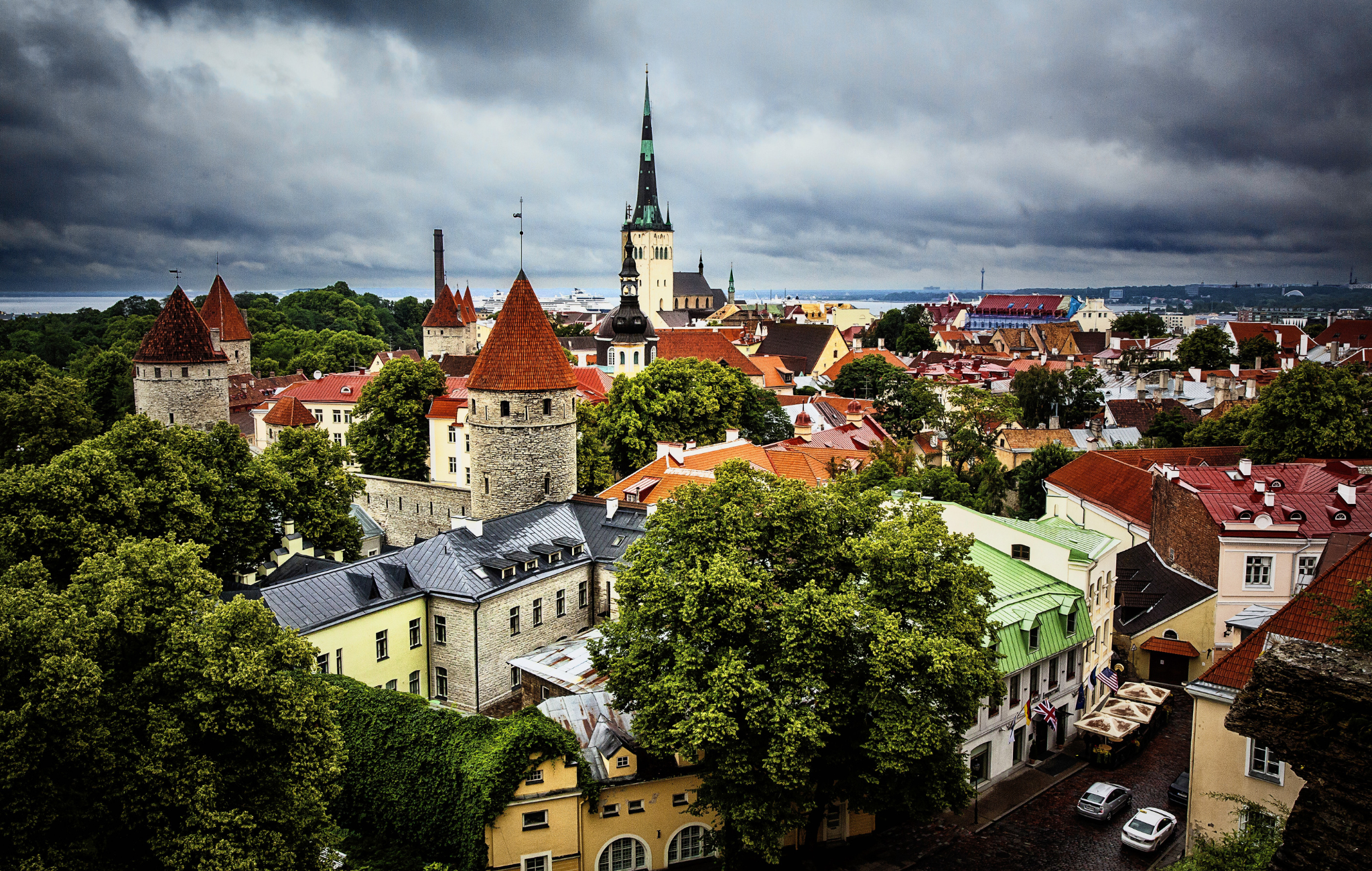
Estonia’s capital, Tallinn, sits in the north of the country on the Baltic Sea. You enter the city through the charming 14th-century Viru Gate, surrounded by market stalls and florists—a great photo spot. For those seeking some history and culture, the Toompea Castle and the architectural grandeur of the Alexander Nevsky Cathedral are worth checking out. Or if it's natural beauty you’re craving, head out of the city to the nearby Jagala Waterfalls.
You can even get the boat across to Helsinki, Finland’s capital for a day trip! It’s a great way to see the Finish capital without paying the extortionate prices of accommodation in the Nordic country—returning to Tallinn the same day.
Wroclaw
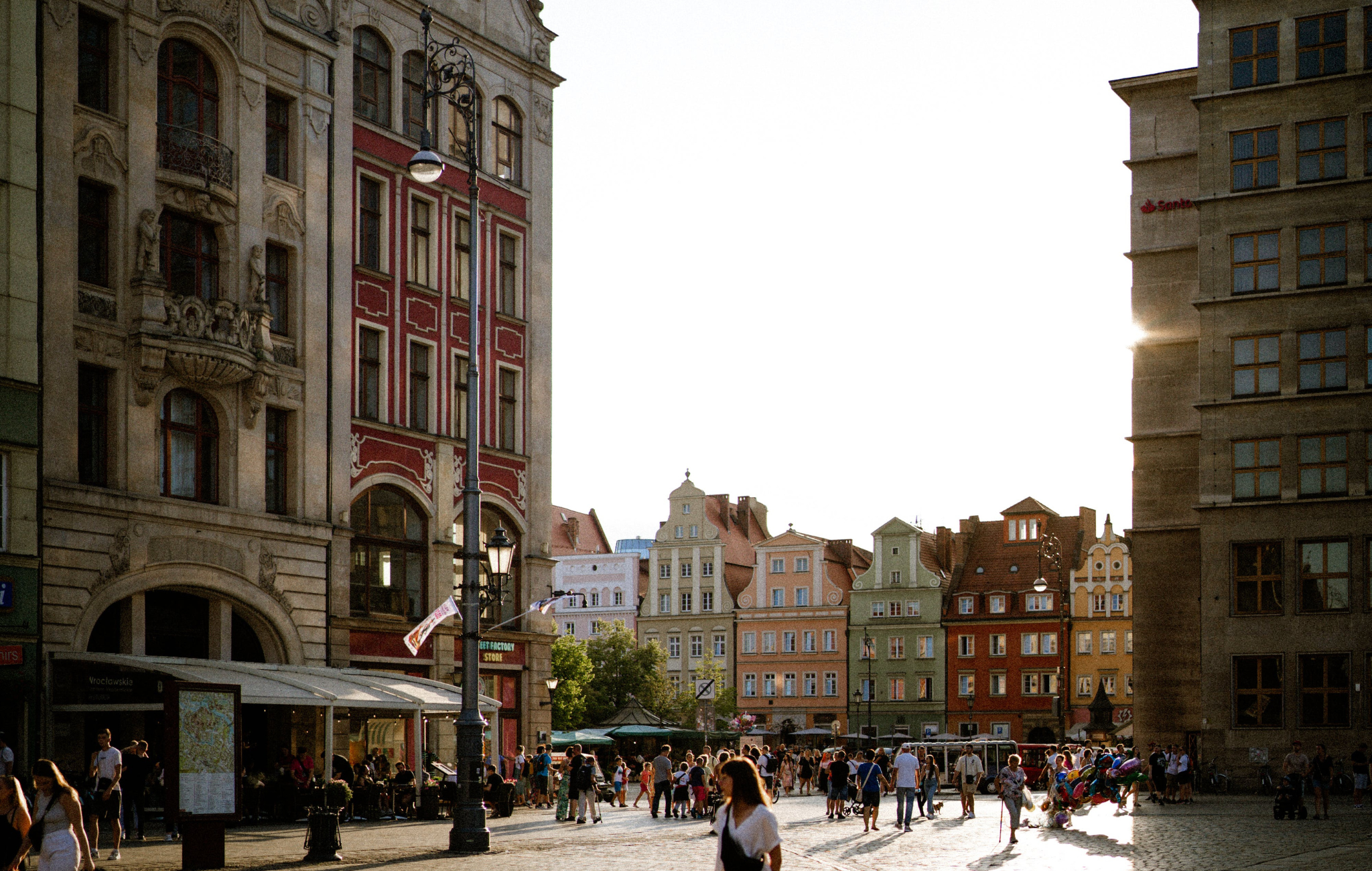
The Eastern European city of Wroclaw, known as the ‘Venice of Poland’, is built on a network of canals with 130 picturesque bridges, located in the west of the country. The vibrant city features a stunning gothic-style cathedral and charming streets, with the river Odra flowing through it. For those who like something a little different, you can embark on your own treasure hunt to find the Wroclaw Dwarves—small figurines that began appearing on the streets around the city in 2005. Grab the app and see if you can find all 600 of them!
Wroclaw boasts a fully pedestrian medieval market square, packed with charm. With a blend of Gothic, Renaissance and Art Nouveau architecture surrounding it, there’s something for everyone.
If you’re a foodie, make sure you try Rosól, a traditional meat soup from the area, or Zapiekanka—an open sandwich with tasty grilled cheese.
Long Story Short...
Eastern European cities have so much to offer—a blend of culture, natural beauty, traditions and vibrancy, all at a much more affordable price than a city break elsewhere in Europe. You’ll avoid the crowds of some of Europe’s tourist hotspots while still discovering beautiful architecture and history, and diving into some amazing cuisine. Enjoy your trip!
By AC Callahan








